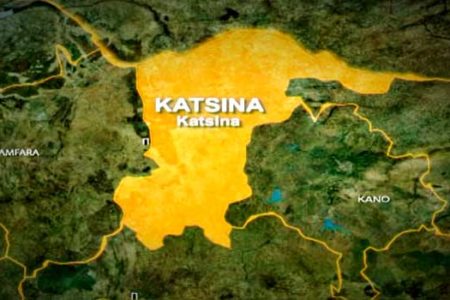Insecurity Gradually Grinding Infrastructure in Katsina State

James Danjuma M.
Billions of naira expended on provisions of necessary infrastructure in Katsina State are gradually going down the drains owing to the ravaging effect of insecurity in the area.
Like his predecessors, the Governor of Katsina State, Aminu Masari has been building on what he met when he came into office in 2015, including expanding and rehabilitating existing infrastructure as well as building new ones.
Among the new projects under construction is the over N5 billion-worth underpass at Kofar Kaura and Kofar Kwaya, aimed at decongesting traffic and allowing for smooth movement into and out of the state metropolitan area.
Another is a major highway worth about N10 billion being constructed by the state government, to connect the state with the neighbouring Niger Republic.
According to the state government, the road would help improve commercial activities and foster cordial relationships between people in the state and those of the French-speaking nation.
In the area of rehabilitation, the government has upgraded dozens of public schools across the state, to make room for additional pupils and students being enrolled.
Existing dams, water boards, roads, and related infrastructure have also been expanded and upgraded, with some of such projects still ongoing.
Read also: Nigerians Divided over Planned Fuel Subsidy Removal
However, despite the government’s efforts the challenge brought about by insecurity has continued to pose a great challenge to infrastructure in the state.
Due to the activities of bandits and related criminals, some of the completed infrastructures in the state have been abandoned, while ongoing ones have been stalled.
Schools and roads in some council areas facing security challenges have been closed to avoid the risk of being kidnapped or other worse occurrences.
Recently, Governor Masari had to shut down two major roads in Jibia and Kankara councils, even as he complained that bandits were using some of the schools built close to forest areas as their hideout.
Because of the security challenges, some residents have fled their communities, thereby abandoning homes, farmlands, and government infrastructure, some of which were constructed using huge public funds.
The recent economic downturn, precipitated by the COVID-19 pandemic has also affected infrastructure in the state, as the government’s lean purse is unable to execute critical projects in the sector.
It was learnt that after the state government pays salaries and overhead costs, what often remains is meager and unable to meet expectations of projects that are aimed at bettering the living condition of the people.
Furthermore, some past projects that were shabbily executed, have kept the state from enjoying value for money as such projects would have to be rebuilt or reconstructed over again.
An example is the township road in the Malumfashi council area, which was constructed by the previous administration in the state.
Hundreds of millions of Naira were reportedly spent on the road’s construction, but the road didn’t last more than a year or two before it became dilapidated.
The current state government had to spend another huge amount of money to make it motorable again.
Also affecting the state of infrastructure in the state is the political differences between the last administration and the current one.
Sadly, the multi-billion Katsina Dubai market and Katsina shopping mall, built by the then PDP-led government, has been practically abandoned by the current administration.
It was learnt that a pending court case had kept the shopping mall from being taken over by the present government, while the market had been overgrown with bushes.




